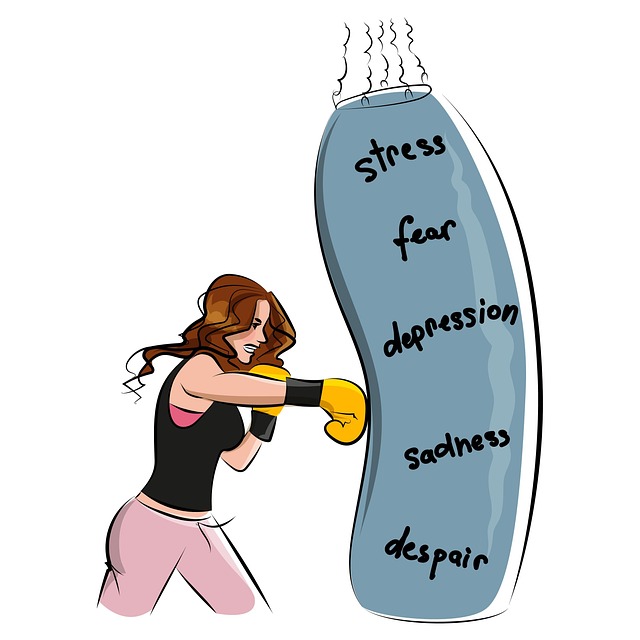Coping skills are essential for successful long-term recovery from substance abuse at Wheat Ridge Drug Abuse-Substance Abuse Therapy. By identifying personal triggers, managing emotions, and adopting healthy strategies like mindfulness and exercise, individuals can navigate stressful situations, reduce relapse risk, and improve overall mental health. Integrating these coping tools into daily life enhances emotional resilience and promotes a balanced, healthy lifestyle post-therapy.
Coping skills development is a vital component of recovery from substance abuse, as it equips individuals with the tools to navigate life’s challenges without resorting to harmful behaviors. This comprehensive guide explores strategies to enhance resilience and promote long-term wellbeing. We delve into understanding coping skills, identifying personal triggers, acquiring effective mechanisms, and integrating these practices into daily routines. For those seeking recovery at Wheat Ridge Drug Abuse-Substance Abuse Therapy, this article offers valuable insights into fostering sustainable mental health.
- Understanding Coping Skills and Their Significance in Recovery
- Identifying Personal Triggers and Stressors
- Acquiring Effective Coping Mechanisms: Strategies for Success
- Integrating Coping Skills into Daily Life: Sustaining Long-Term Wellbeing
Understanding Coping Skills and Their Significance in Recovery

Coping skills are essential tools for individuals navigating recovery from Wheat Ridge Drug Abuse-Substance Abuse Therapy. These skills refer to the strategies people use to manage and cope with stressful situations, difficult emotions, and triggers that could lead to relapse. Effective coping mechanisms empower individuals to maintain sobriety, improve their overall well-being, and enhance their ability to handle challenges along their recovery journey.
Developing strong coping skills plays a pivotal role in breaking free from the cycle of addiction. It involves learning healthy alternatives to dealing with stress, anxiety, or emotions that might have previously been numbed through substance abuse. By mastering these skills, individuals can better regulate their emotions, communicate more effectively using communication strategies, and participate actively in Mental Illness Stigma Reduction Efforts. This, in turn, fosters a sense of resilience and encourages long-term recovery.
Identifying Personal Triggers and Stressors

Recognizing personal triggers and stressors is a crucial step in coping skills development. This involves becoming aware of situations, emotions, or behaviors that often lead to feelings of distress or trigger past traumatic experiences. At Wheat Ridge Drug Abuse-Substance Abuse Therapy, professionals help individuals identify these triggers through introspection and various Emotional Well-being Promotion Techniques. By understanding one’s unique triggers, individuals can begin to navigate challenging situations more effectively.
Empathy Building Strategies play a significant role in this process as it fosters a deeper connection with oneself and others. Enhancing mental health awareness enables individuals to recognize when they’re under stress and take proactive measures. This self-awareness is vital for managing and coping with triggers, ultimately leading to improved emotional resilience and overall Mental Health Awareness.
Acquiring Effective Coping Mechanisms: Strategies for Success

Acquiring effective coping mechanisms is a vital component of overall well-being and can be especially crucial for individuals recovering from substance abuse at Wheat Ridge Drug Abuse or facing similar challenges. Stress management plays a significant role in this process. By learning to recognize triggers and implement healthy coping strategies, such as mindfulness practices or engaging in hobbies, individuals can navigate stressful situations without resorting to harmful behaviors. Burnout prevention is another key aspect; mental health professionals should prioritize self-care and incorporate techniques like regular exercise and adequate sleep into their routines to maintain resilience.
Risk management planning is essential for both professionals and clients. It involves identifying potential triggers or stressors and developing proactive strategies to mitigate their impact. For instance, a therapist might suggest keeping a journal to track emotions and thoughts during challenging sessions. Incorporating these practices not only aids in personal growth but also enhances the effectiveness of substance abuse therapy, fostering a healthier and more balanced lifestyle.
Integrating Coping Skills into Daily Life: Sustaining Long-Term Wellbeing

Integrating coping skills into daily routines is a powerful strategy for maintaining long-term wellbeing, especially after overcoming challenges like substance abuse therapy at Wheat Ridge Drug Abuse. Effective coping mechanisms provide individuals with healthy ways to navigate stress and difficult emotions, preventing relapse and fostering resilience. By incorporating practices such as mindfulness, exercise, and emotional awareness into their self-care routine development, individuals can enhance their ability to manage triggers and maintain recovery.
This sustained focus on emotional healing processes enables individuals to cultivate a sense of balance and equanimity in their lives. Engaging regularly in stress management techniques allows for the development of a robust coping toolkit, ensuring that individuals have the resources needed to confront life’s challenges head-on. Ultimately, integrating these practices supports long-lasting mental health and fosters a deeper connection with one’s emotional well-being.
Coping skills development is a pivotal aspect of recovery from substance abuse, as it equips individuals with healthy tools to navigate life’s challenges. By understanding and implementing effective coping strategies, as discussed in this article, one can enhance their resilience and overall wellbeing. At Wheat Ridge Drug Abuse-Substance Abuse Therapy, we emphasize the importance of these skills, offering guidance to help clients integrate them into their daily lives for long-term success and a fulfilling recovery journey.









